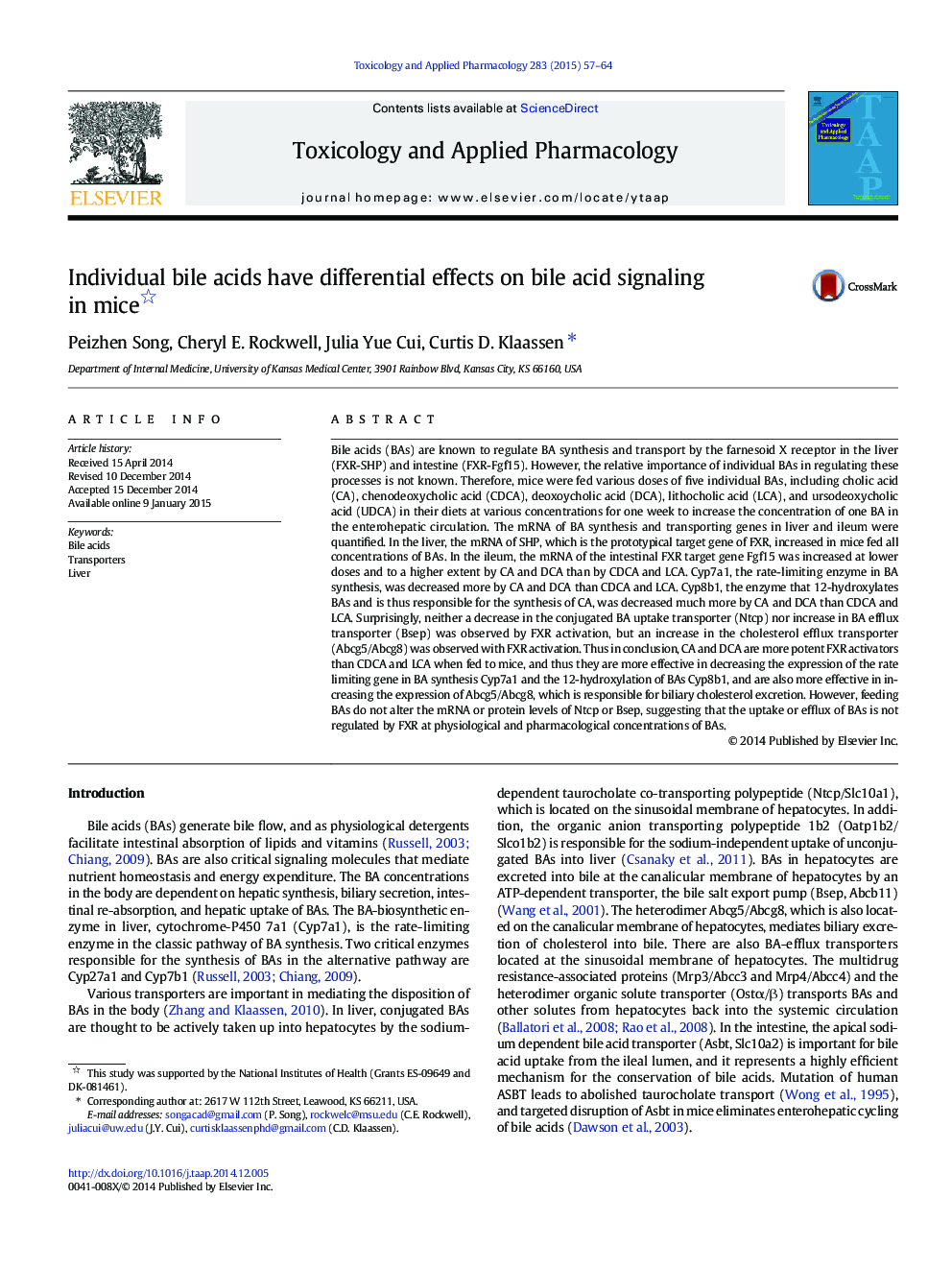| Article ID | Journal | Published Year | Pages | File Type |
|---|---|---|---|---|
| 5846168 | Toxicology and Applied Pharmacology | 2015 | 8 Pages |
Abstract
Bile acids (BAs) are known to regulate BA synthesis and transport by the farnesoid X receptor in the liver (FXR-SHP) and intestine (FXR-Fgf15). However, the relative importance of individual BAs in regulating these processes is not known. Therefore, mice were fed various doses of five individual BAs, including cholic acid (CA), chenodeoxycholic acid (CDCA), deoxoycholic acid (DCA), lithocholic acid (LCA), and ursodeoxycholic acid (UDCA) in their diets at various concentrations for one week to increase the concentration of one BA in the enterohepatic circulation. The mRNA of BA synthesis and transporting genes in liver and ileum were quantified. In the liver, the mRNA of SHP, which is the prototypical target gene of FXR, increased in mice fed all concentrations of BAs. In the ileum, the mRNA of the intestinal FXR target gene Fgf15 was increased at lower doses and to a higher extent by CA and DCA than by CDCA and LCA. Cyp7a1, the rate-limiting enzyme in BA synthesis, was decreased more by CA and DCA than CDCA and LCA. Cyp8b1, the enzyme that 12-hydroxylates BAs and is thus responsible for the synthesis of CA, was decreased much more by CA and DCA than CDCA and LCA. Surprisingly, neither a decrease in the conjugated BA uptake transporter (Ntcp) nor increase in BA efflux transporter (Bsep) was observed by FXR activation, but an increase in the cholesterol efflux transporter (Abcg5/Abcg8) was observed with FXR activation. Thus in conclusion, CA and DCA are more potent FXR activators than CDCA and LCA when fed to mice, and thus they are more effective in decreasing the expression of the rate limiting gene in BA synthesis Cyp7a1 and the 12-hydroxylation of BAs Cyp8b1, and are also more effective in increasing the expression of Abcg5/Abcg8, which is responsible for biliary cholesterol excretion. However, feeding BAs do not alter the mRNA or protein levels of Ntcp or Bsep, suggesting that the uptake or efflux of BAs is not regulated by FXR at physiological and pharmacological concentrations of BAs.
Keywords
Related Topics
Life Sciences
Environmental Science
Health, Toxicology and Mutagenesis
Authors
Peizhen Song, Cheryl E. Rockwell, Julia Yue Cui, Curtis D. Klaassen,
